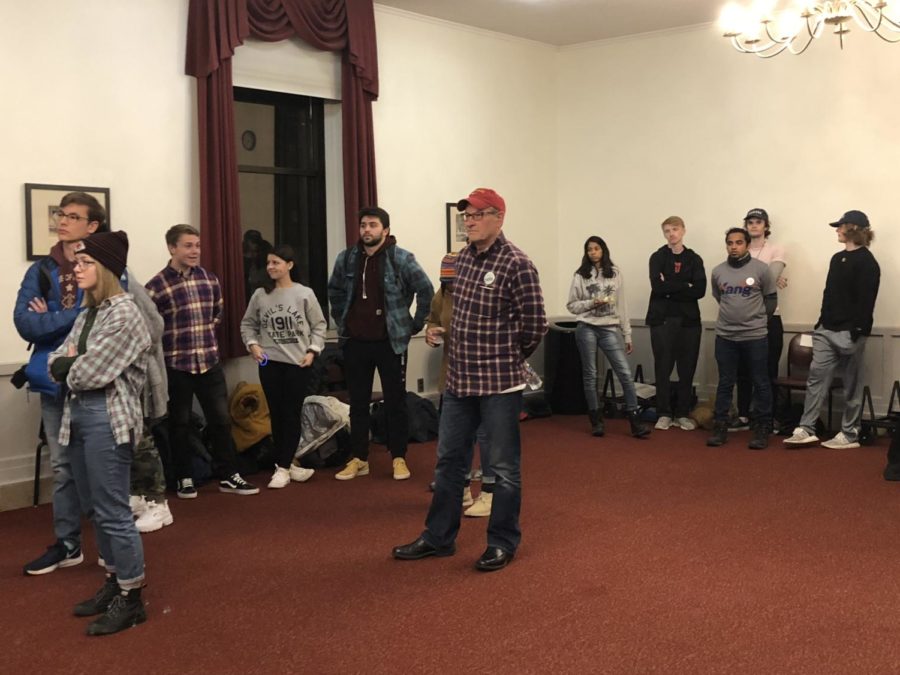Tyrrell: It’s time to caucus
NextGen America hosted a mock caucus event at Iowa State on Oct. 30 in the Cardinal Room of the Memorial Union.
January 27, 2020
On Monday, Iowans across the state (as well as some satellite locations) will march to over 1,600 precinct locations to caucus for the man or woman whom they believe should be the next president of the United States.
Unlike the majority of the country, which votes via primary election, Iowa votes by caucus — a sort of political musical chairs, which takes place in auditoriums, church basements and elementary school gyms throughout the state. As the first state in a long line of primaries and caucuses, Iowa has an outsized impact. And as young voters — a historically underrepresented demographic in elections — we Iowa State students cannot waste this chance to make our voices heard.
For those out of state students who might not understand what a caucus is or how it works, here’s a brief explanation (or you can check out the helpful simulations provided by Politico and the Washington Post). Every Iowa voter is assigned a caucus location by their address. At this location, voters divide up by candidate, and each candidate with over 15 percent representation is considered “viable” and automatically receives delegates for the Democratic National Convention.
After the first round, any voters representing a candidate with over 15 percent of the overall votes has to stay with their chosen candidate. All the voters in the smaller groups can then either defect for a “viable” group, or they can stay and persuade other nonviable voters to join them and reach the 15 percent threshold. At the end of the night, the candidate with the most delegates “wins” the Iowa caucus — a status which nets them the party nomination approximately 55 percent of the time.
I’m from Illinois, and the concept of a caucus was foreign to me when I came to Iowa State. Now that I understand the process, I’m eager to participate – and you all should be too. Voting is your civic duty.
“I think it’s a cool thing because it’s an opportunity to get really educated about the election,” Iowa State junior Sydney Lehman says. “We get to be such a key component to it all.” Lehman is originally from Colorado, and this will be her first caucus.
Iowa State junior Madeline Sinovic has an especially unique perspective on the importance of the caucus — for the last eight months, she’s been working as a field organizer for the Warren campaign and has focused exhaustively on drumming up support for Warren at the caucus.
“Attending the caucus is crucial because we, as Iowans, have the power to influence who the country nominates as the Democratic nominee. Since Iowa is the first state to vote, the other states pay close attention to the results and tend to follow suit,” Sinovic said. “Our voices matter so much here, and we have a responsibility to show up for the candidate we believe in.”
Sinovic is right — we have a responsibility to show up and participate Monday night. But more than that, it is our responsibility to be informed about the candidate we choose as well. As young voters, we are especially inclined to follow our parents’ beliefs or the beliefs of our peers. This caucus is an opportunity to do your own research, decide what values you hold most important and choose the candidate who best reflects those ideals. And this caucus is a chance to express those ideals in a real, tangible way, rather than via Twitter rants or political debates over Thanksgiving dinner.
Fellow Iowa State students — don’t throw away that chance. It’s time to caucus.







